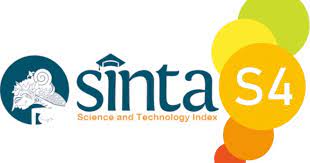Saudi K-12 teachers' views on English teaching using technology
DOI:
https://doi.org/10.22219/englie.v5i1.31613Keywords:
Technology and Learning English, Computer Assisted Language Learning, Attitudes Towards Technology, English as A Foreign Language, Saudi K-12 EducationAbstract
Teachers play a vital role as key stakeholders in the educational process. They have comprehensive insights into specific challenges that schools encounter, and their perspectives can provide in-depth presentations on particular issues faced within schools. This study investigated the perceptions of Saudi K-12 teachers on the use of technologies in teaching English as a foreign language (EFL). A mixed-method study was conducted in 13 K-12 schools in the southern part of Saudi Arabia to investigate teachers' perceptions of using technologies in teaching and learning EFL. The study involved 35 teachers, both male and female, who teach English at different levels in K-12 education. Quantitative data were collected through questionnaires (n = 30) and analyzed quantitatively. Qualitative data were collected through interviews (n = 5) and analyzed thematically. The study found that Saudi K-12 teachers generally have positive perceptions of the use of technologies to teach English in their classrooms. They believe that technologies can improve student motivation, engagement, and achievement. They also believe that technologies can give students access to a wider range of resources and help them develop 21st-century skills. The study also identified some challenges to the use of technologies in Saudi K-12 education, such as lack of teacher training, limited access to technology, and cultural factors. However, the study also provided valuable insights into the criteria that teachers use to choose technologies to teach English in Saudi Arabia. The findings of this study have implications for the development of technology policies and practices in K-12 schools. The findings also provide valuable insights for teachers and researchers who are interested in the use of technologies in EFL in general and K-12 education in particular.
Downloads
References
Alhamami, M. (2018). Directions to Digital Language Learning and Teaching (DLL&T). Createspace, Amazon.com. Link http://a.co/d/8fSKRyL
Alhamami, M., & Costello, H. (2019). Pre-service EFL teachers’ expectations, needs, and challenges in a language learning and technology course. Journal of Language Teaching and Research, 10(3), 593–602.
Alhojailan, M. I., & Ibrahim, M. (2012). Thematic analysis : A critical review of its process and evaluation. WEI International European Academic Conference Proceedings, 1(1), 8–21.
An, H., Alon, S., & Fuentes, D. (2015). Tablets in K-12 Education: Integrated experiences and implications. Information Science References (an imprint of IGI Global): Hershey PA, USA.
Aşık, A., Köse, S., Yangın Ekşi, G., Seferoğlu, G., Pereira, R., & Ekiert, M. (2020). ICT integration in English language teacher education: insights from Turkey, Portugal and Poland. Computer Assisted Language Learning, 33(7), 708–731. https://doi.org/10.1080/09588221.2019.1588744
Aslan, A., & Zhu, C. (2017). Investigating variables predicting Turkish pre‐service teachers’ integration of ICT into teaching practices. British Journal of Educational Technology, 48(2), 552–570. https://doi.org/10.1111/bjet.12437
Bratitsis, T. (2023). Research on E-Learning and ICT in Education: Technological, Pedagogical, and Instructional Perspectives. Springer Nature.
Byker, E. J., Putman, S. M., Handler, L., & Polly, D. (2017). Educational Technology and Student Voice: Examining Teacher Candidates’ Perceptions. World Journal on Educational Technology: Current Issues, 9(3), 119–129. https://eric.ed.gov/?id=EJ1161604
Collins, A., & Halverson, R. (2018). Rethinking education in the age of technology: The digital revolution and schooling in America. Teachers College Press.
Creswell, J. W. (2011). Educational research (planning, conducting and evaluating quantitative and qualitative research) (Fourth Edi). Pearson Education.
Creswell, J. W., & Clark, V. L. P. (2018). Desiging and conducting mixed methods research. SAGE Publications.
Gebremedhin, M. A., & Fenta, A. A. (2015). Assessing Teachers’ Perception on Integrating ICT in Teaching-Learning Process: The Case of Adwa College. Journal of Education and Practice, 6(4), 114–124. https://eric.ed.gov/?id=EJ1083759
Ghavifekr, S., & Rosdy, W. A. W. (2015). Teaching and learning with technology: Effectiveness of ICT integration in schools. International Journal of Research in Education and Science, 1(2), 175–191. https://files.eric.ed.gov/fulltext/EJ1105224.pdf
Hartman, R. J., Townsend, M. B., & Jackson, M. (2019). Educators’ perceptions of technology integration into the classroom: a descriptive case study. Journal of Research in Innovative Teaching & Learning, 12(3), 236–249. https://doi.org/10.1108/jrit-03-2019-0044
Henderson, M., Henderson, M. J., & Romeo, G. (2015). Teaching and digital technologies: Big issues and critical questions. Cambridge University Press.
Hughes, J. E., & Roblyer, M. D. (2023). Integrating educational technology into teaching: Transforming learning across disciplines. ERIC.
Januszewski, A., & Molenda, M. (2013). Educational technology: A definition with commentary. Routledge.
Jatileni, M & Jatileni, C.N. (2018). Teachers’ perception on the use of ICT in teaching and learning: A case of namibian primary education. (Master’s thesis, Itä-Suomen yliopisto. University of Eastern Finland.
Jayanthi, N. S., & Kumar, R. V. (2016). Use of ICT in English language teaching and learning. Journal of English Language Teaching and Learning, 3(2), 34–38. https://www.joell.in/wp-content/uploads/2016/03/34-38Use-of-ICT-in-English-Language-Teaching.pdf
Kamalodeen, V. J., & Jameson-charles, M. (2016). A mixed methods research approach to exploring teacher participation in an online social networking website. International Journal of Qualitative Methods, 1–14. https://doi.org/10.1177/1609406915624578
Leahy, S. M., Holland, C., & Ward, F. (2019). The digital frontier: Envisioning future technologies impact on the classroom. Futures, 113, 102422. https://doi.org/10.1016/j.futures.2019.04.009
Lomos, C., Luyten, J. W., & Tieck, S. (2023). Implementing ICT in classroom practice: what else matters besides the ICT infrastructure? Large-Scale Assessments in Education, 11(1), 1–28. https://largescaleassessmentsineducation.springeropen.com/articles/10.1186/s40536-022-00144-6
McDiarmid, G. W., & Zhao, Y. (2023). Time to Rethink: Educating for a Technology-Transformed World. ECNU Review of Education, 6(2), 189–214. https://doi.org/10.1177/20965311221076493
Merikko, J., & Kivimäki, V. (2022). “Replacing teachers? Doubt it.” Practitioners’ views on adaptive learning technologies’ impact on the teaching profession. Frontiers in Education, 7, 1010255. https://doi.org/10.3389/feduc.2022.1010255
Mhlongo, S., Mbatha, K., Ramatsetse, B., & Dlamini, R. (2023). Challenges, opportunities, and prospects of adopting and using smart digital technologies in learning environments: An iterative review. Heliyon, 9(6), e16348. https://doi.org/10.1016/j.heliyon.2023.e16348
Prestridge, S. (2012). The beliefs behind the teacher that influences their ICT practices. Computers & Education, 58(1), 449–458. 10.1016/j.compedu.2011.08.028
Rabah, J. (2015). Benefits and Challenges of Information and Communication Technologies (ICT) Integration in Québec English Schools. Turkish Online Journal of Educational Technology - TOJET, 14(2), 24–31. https://eric.ed.gov/?id=EJ1057526
Ratheeswari, K. (2018). Information Communication Technology in Education. Journal of Applied and Advanced Research, 3, 45. https://doi.org/10.21839/jaar.2018.v3iS1.169
Riazi, A. M., & Candlin, C. N. (2014). Mixed-methods research in language teaching and learning: Opportunities, issues and challenges. Language Teaching, 47(2), 135–173.
Sabiri, K. A. (2020). ICT in EFL teaching and learning: A systematic literature review. Contemporary Educational Technology, 11(2), 177–195. https://doi.org/10.30935/cet.665350
Saudi National Unified Portal. (2023). Digital Inclusion. https://Www.My.Gov.Sa/Wps/Portal/Snp/Careaboutyou/Digitalinclusion/?Lang=en
Son, J. (2018). Technology in English as a foreign language (EFL) teaching. The TESOL Encyclopedia of English Language Teaching, 1–7. https://doi.org/10.1002/9781118784235.eelt0448
Spiteri, M., & Chang Rundgren, S.-N. (2020). Literature review on the factors affecting primary teachers’ use of digital technology. Technology, Knowledge and Learning, 25, 115–128. https://link.springer.com/article/10.1007/s10758-018-9376-x
Starkey, L. (2020). A review of research exploring teacher preparation for the digital age. Cambridge Journal of Education, 50(1), 37–56. 10.1080/0305764X.2019.1625867
Wang, Q., & Zhao, G. (2023). Exploring the influence of technostress creators on in‐service teachers’ attitudes toward ICT and ICT adoption intentions. British Journal of Educational Technology. https://doi.org/10.1111/bjet.13315
Yates, A., Starkey, L., Egerton, B., & Flueggen, F. (2021). High school students’ experience of online learning during Covid-19: the influence of technology and pedagogy. Technology, Pedagogy and Education, 30(1), 59–73. https://doi.org/10.1080/1475939X.2020.1854337
Zhang, K., & Wu, H. (2022). Synchronous online learning during COVID-19: Chinese university EFL students’ perspectives. SAGE Open, 12(2), 1–10. https://doi.org/10.1177/21582440221094821
Zhao, C., & Chen, B. (2023). ICT in education can improve students’ achievements in rural China: The role of parents, educators and authorities. Journal of Policy Modeling, 45(2), 320–344. https://doi.org/10.1016/j.jpolmod.2023.02.007
Downloads
Published
How to Cite
Issue
Section
License
Copyright (c) 2024 Al-alami, A.M., & Alhamami, M.

This work is licensed under a Creative Commons Attribution-ShareAlike 4.0 International License.
Authors who publish with English Learning Innovation (englie) agree to the following terms:
- For all articles published in English Learning Innovation (englie), copyright is retained by the authors. Authors give permission to the publisher to announce the work with conditions. When the manuscript is accepted for publication, the authors agree to automatic transfer of the publishing right to the publisher.
- Authors retain copyright and grant the journal right of first publication with the work simultaneously licensed under a Creative Commons Attribution-ShareAlike 4.0 International License that allows others to share the work with an acknowledgement of the work's authorship and initial publication in this journal.
- Authors are able to enter into separate, additional contractual arrangements for the non-exclusive distribution of the journal's published version of the work (e.g., post it to an institutional repository or publish it in a book), with an acknowledgment of its initial publication in this journal.
- Authors are permitted and encouraged to post their work online (e.g., in institutional repositories or on their website) prior to and during the submission process, as it can lead to productive exchanges, as well as earlier and greater citation of published work (See The Effect of Open Access).
This work is licensed under a Creative Commons Attribution-ShareAlike 4.0 International License.
















1.png)












